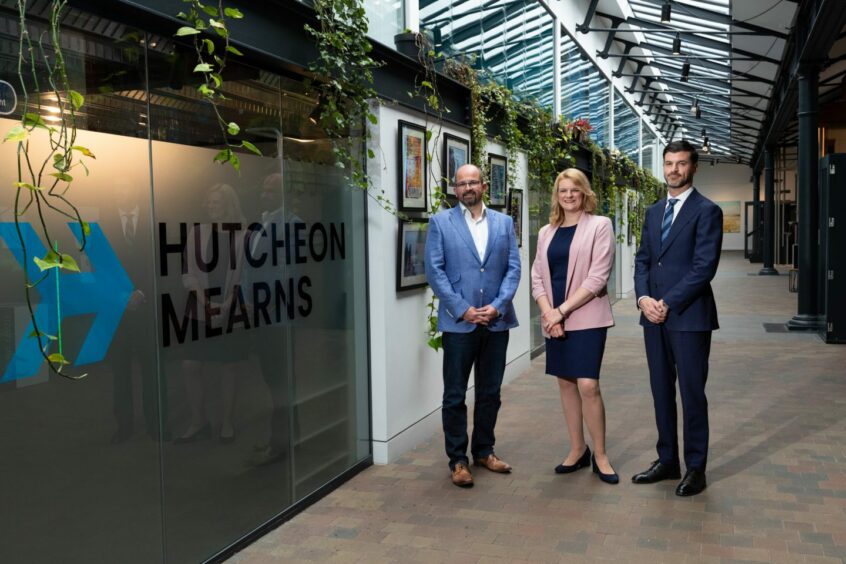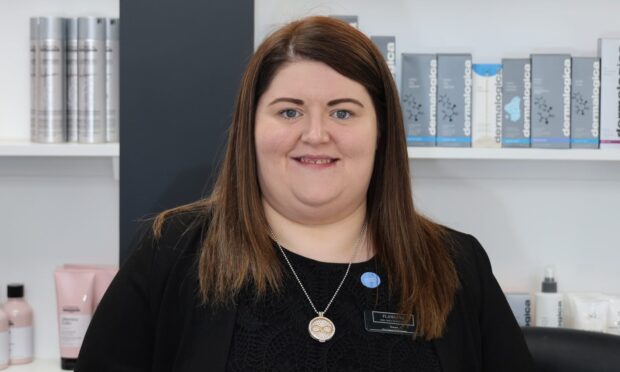An effective equality, diversity and inclusion (EDI) strategy could be the key to attracting and retaining a talented workforce.
-
Some Courier online content is funded by outside parties. The revenue from this helps to sustain our independent news gathering. You will always know if you are reading paid-for material as it will be clearly labelled as “Partnership” on the site and on social media channels,
This can take two different forms.
“Presented by”
This means the content has been paid for and produced by the named advertiser.
“In partnership with”
This means the content has been paid for and approved by the named advertiser but written and edited by our own commercial content team.
According to the British Psychological Society, 69% of millennials and Gen Z-ers say they would be much more likely to work for an employer for more than five years if it had a diverse workforce.
Meanwhile, People Management noted that two-thirds of UK workers (66 per cent) say that the acceptance and inclusion of employees from all backgrounds is important to them when searching for jobs.
Embedding an EDI strategy in workplace culture
Lynsey Campbell, head of people solutions (Dundee) at Hutcheon Mearns, has noticed it coming up far more often in conversations.
She said: “I recently interviewed someone I’ve known for many years and she’s at the stage of her career where she’s a senior executive and operates in an environment that supports individuals at all levels, something she’s not always experienced in her career within the manufacturing sector.
“Her view is that, now, what’s important to her is to work for a company that really does what it says on the tin; that supports and treats everyone fairly on the basis of what they bring to the team, no matter where they’re from or who they are.
“For her to move jobs, she would have to know that an organisation held those values too.”
That’s why companies need to be seen to be taking action on their EDI strategy – to attract and retain the best workforce.
Lynsey explains: “In bigger companies, you’ll find EDI policies, promoting employee voice and advocating for different groups of people in the workforce; while in smaller companies it may be enhancing flexibility, widening your potential talent pool and promoting open-minded recruitment practices.
“Overall, it’s not just about celebrating International Women’s Day or other awareness days. It’s not just about diversifying your board members.
“It’s about actually living and breathing those values that make your workplace a great place to be for everyone –that’s your culture, that’s how you operate.”
Making the most of Dundee’s talent pool
When businesses truly embrace inclusion, they have the chance to bring in diversity of thinking and new mindsets that can revolutionise the way they operate.
The Chartered Institute of Personnel and Development (CIPD) notes that taking EDI seriously “leads to enhanced innovation, creativity, productivity, reputation, engagement and business results.”
This is particularly true in a city like Dundee that, as well as being home to talented locals, attracts some of the best minds from across the world thanks to its universities.
Local businesses need to take advantage of this unique talent pool, says Lynsey.
She explains: “There are many individuals from all over the world who come to study in Dundee and want to continue working here, who have very good careers from having been in jobs in their previous countries and have something to give.
“But some organisations can lack the understanding, desire or appetite to take on someone who comes from a different working culture.
“They might have some nervousness about costs and navigating the government’s sponsorship rules, which are onerous and difficult. They might not understand the difference between the various VISAs that allow individuals to work in the UK, so when faced with a recruitment decision, they end up just opting for what they see as a more straightforward option.”
Being open-minded is key to a successful EDI strategy
But this kind of attitude ultimately can mean missing out on talented, knowledgeable potential employees.
That’s why Lynsey, who has worked in recruitment for nearly 20 years, encourages her clients to be open-minded.
She says: “I’ve worked with many organisations recently who’ve initially been looking for a full time employee and have had very fixed parameters in the recruitment process. For example, in a recent recruitment project, I discussed the talent pool with the client and what was really important to the organisation.
“The person who was recruited was actually offered a much more flexible working arrangement than was initially planned and was the ideal candidate for the job.
“There are fantastic people in the talent pool that wouldn’t necessarily have been considered had that organisation stuck to a five-day, 37-hour working week.
“For me, the recent change in the flexibility that the Flexible Working Act – which means that individuals now have the right to request flexible working from day one – could open up a much bigger pool of talent and people.
“In a tighter talent pool, you have to be prepared to open out your views on who you employ and where you might recruit from.”
A flexible and wide benefits package
A key part of this is remembering that employees are attracted by a variety of things.
Lynsey says: “It’s no longer just ‘they’ve got a good pension, they’ve got a good salary, they offer good holidays and it’s on my doorstep’. It’s now things like hybrid working, flexible working, culture, ethos and values.
“Different people are attracted by different things, so you need to give as wide a benefits package as possible to attract different levels.”
For example, flexible working patterns really just means letting the right person contribute to your business by simply allowing them to work in a way that suits them.
And that kind of flexible approach naturally encourages more inclusion and diversity, says Lynsey: “It lets people be their best authentic selves in their work.”
That’s really what it’s all about, after all. Lynsey continues: “Now, EDI is beyond the legal frameworks that you have to abide by. It’s about creating working environments and cultures where everyone feels safe and that they belong. Where they are empowered, and they achieve their fair and full potential. That’s the environment and society we’re in.”
Are you currently looking at your EDI strategy? Hutcheon Mearns provides advice for clients to help them navigate the current candidate market and offers recruitment solutions to suit all businesses. Find out more about people advisory services from Hutcheon Mearns.











